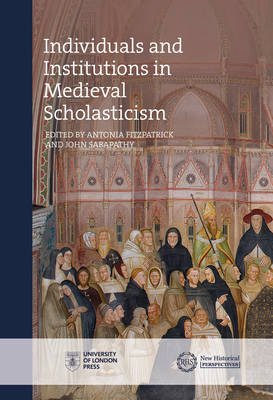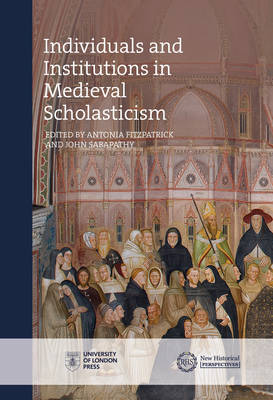
- Retrait gratuit dans votre magasin Club
- 7.000.000 titres dans notre catalogue
- Payer en toute sécurité
- Toujours un magasin près de chez vous
- Retrait gratuit dans votre magasin Club
- 7.000.0000 titres dans notre catalogue
- Payer en toute sécurité
- Toujours un magasin près de chez vous
Individuals and Institutions in Medieval Scholasticism
Description
This volume explores the relationship between individuals and institutions in scholastic thought and practice across the twelfth and fifteenth centuries, taking a broad approach to scholasticism in its inclusion of ethics, history, heresy, law, inquisition, metaphysics, pastoral care, poetry, religious orders, saints' cults and theology. It addresses two major questions: what was the relationship between particular intellectuals and their wider networks; and how did individuals alter their institutions, and likewise, these institutions shape these individuals? This book is of major importance to intellectual, religious and cultural historians as well as historians of knowledge and science.
Spécifications
Parties prenantes
- Editeur:
Contenu
- Nombre de pages :
- 300
- Langue:
- Anglais
- Collection :
Caractéristiques
- EAN:
- 9781912702268
- Date de parution :
- 31-07-20
- Format:
- Livre relié
- Format numérique:
- Genaaid
- Dimensions :
- 156 mm x 234 mm
- Poids :
- 753 g

Les avis
Nous publions uniquement les avis qui respectent les conditions requises. Consultez nos conditions pour les avis.





